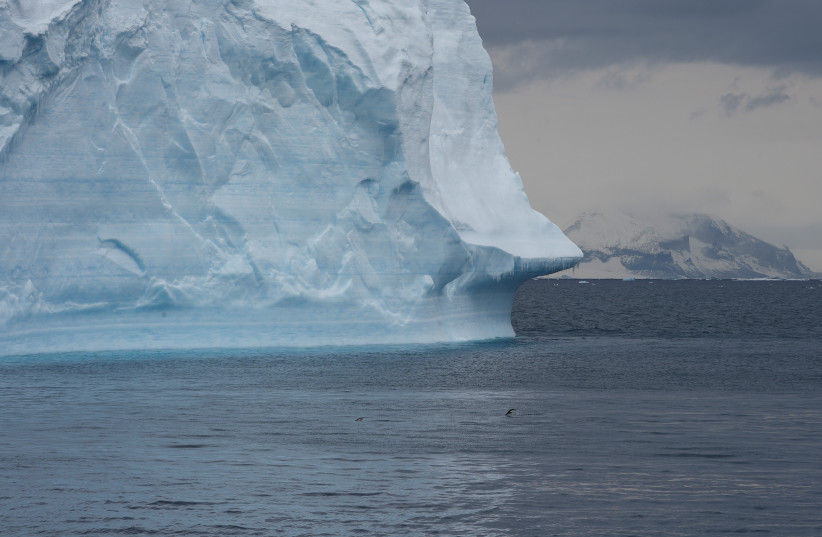Emperor penguins in Antarctica are being driven to the brink of extinction due to climate change and the resultant melting sea ice, according to a new study by researchers from the British Antarctic Survey which was published in the journal Communications Earth & Environment.
The researchers studied emperor penguin breeding sites on the Bellingshausen Sea along the Antarctic Peninsula and noted an unprecedented breeding failure which was caused by a severe lack of of sea ice at the sites.
Antarctica is the only place in the world where emperor penguins can be found, as the black and white birds have adapted to survive and thrive in the continent’s freezing conditions. However, their survival is being threatened by climate change and global warming.
Emperor penguins are reliant on sea ice, particularly stable pack ice near the coast, for their breeding cycles and as sea ice has begun forming later in the year and melting earlier, they are running out of breeding ground at an alarming rate.
“We have never seen emperor penguins fail to breed at this scale in a single season,” said Dr. Peter Fretwell, the lead researcher of the study.

Sea ice is melting at an alarming rate
“The loss of sea ice in this region during the Antarctic summer made it very unlikely that displaced chicks would survive.”
“We know that emperor penguins are highly vulnerable in a warming climate, and current scientific evidence suggests that extreme sea ice loss events like this will become more frequent and widespread.”
Sea ice in the Antarctic region has been steadily declining in recent years, leaving scientists concerned about the severity of the crisis.
“The sea ice extent in Antarctica is still far below all previous records for this time of year. In this period where oceans are freezing up, we’re seeing areas that are still, remarkably, largely ice-free,” said Dr. Caroline Holmes, a polar climate scientist at the British Antarctic Survey.
“The recent years of tumbling sea ice records and warming of the subsurface Southern Ocean point strongly to human-induced global warming exacerbating these extremes.”
Record low extents of sea ice since 2021 led to a “total breeding failure” for the emperor penguin colonies during the 2022 season.
“Climate change is melting sea ice at an alarming rate. It is likely to be absent from the Arctic in the 2030s – and in the Antarctic, the four lowest sea ice extents recorded have been since 2016,” said Dr. Jeremy Wilkinson, a sea ice physicist at the British Antarctic Survey.
“It is another warning sign for humanity that we cannot continue down this path; politicians must act to minimize the impact of climate change. There is no time left.”
The Environment and Climate Change portal is produced in cooperation with the Goldman Sonnenfeldt School of Sustainability and Climate Change at Ben-Gurion University of the Negev. The Jerusalem Post maintains all editorial decisions related to the content.
